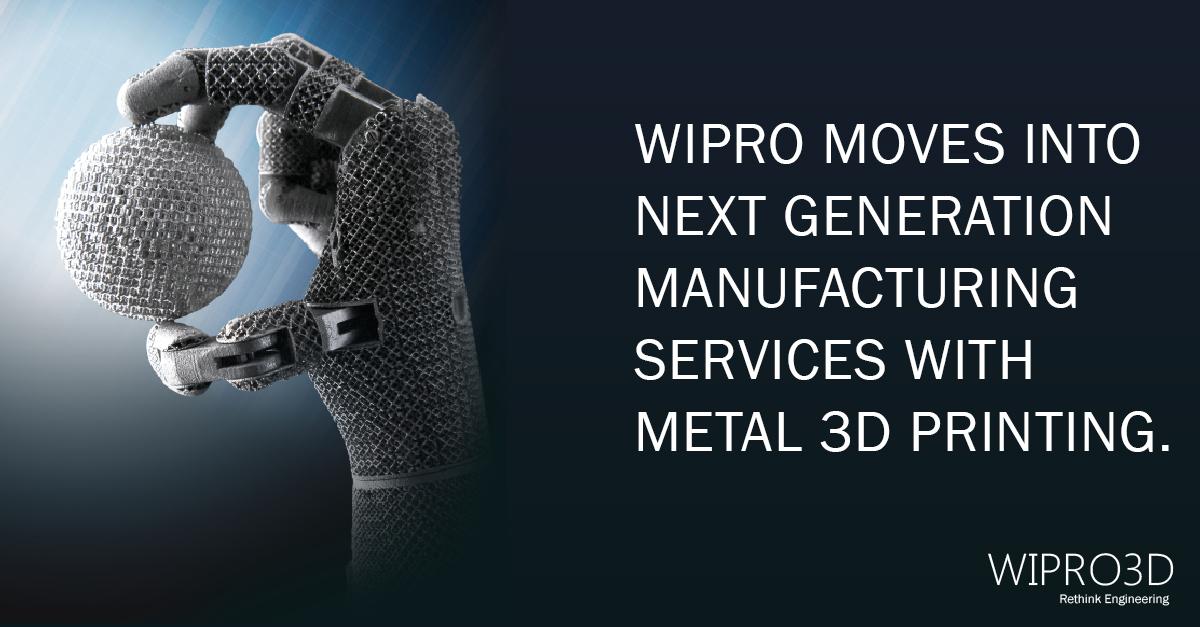Global information technology company Wipro is developing manufacturing applications that are built upon a blockchain and targeted at 3D printer systems.
A chain of blocks?
Speaking to Automation World, Wipro’s general manager and business unit leader – Sanjeev Ramakrishnan explains how Wipro has developed a blockchain system with four main offerings. These include measures for anti-counterfeiting, aerospace certification, supply chain and additive manufacturing.
Blockchain as a decentralized network, resilient to malicious data tampering is seen as advantageous for data security and integrity. With cybersecurity increasingly making headlines, such characteristics are understandably appealing.
Next generation cryptocurrencies such as the Ethereum platform have added another level of sophistication to blockchain, for example the ability to execute scripts that permit automated negotiation via smart contracts.
Wipro’s additive manufacturing arm, Wipro3D recently partnered with US 3D printing consultancy firm Print Form to expand the company’s global 3D printing operations.

Securing the manufacturing process
Sanjeev Ramakrishnan explains Wipro’s dedicated blockchain solutions are aimed towards manufacturing businesses and can be tailored to the customers’ individual needs. As he says,
…all of Wipro’s blockchain solutions include: blueprints for domain-specific use case; the solution architecture; the code base, which can be customized and integrated; and full solution documentation
Using a unique ID, Wipro intends to validate manufacturing processes by eliminating the possibility of counterfeit items entering the supply chain. Wipro explains the items would be scanned at every point of the manufacturing process up until the sale. Such a transparent system would also provide benefits for quality management and verification.
Aerospace application
By securing digital assets, Wipro believes blockchain has particular application in aerospace where the guidelines for airworthiness certificates are particularly stringent. Data held across a blockchain is resistant to deliberate corruption because any changes will fail to be validated against the distributed ledger. Ramakrishnan states “the shared ledger ensures a tamper-proof and reliable version of data is available for all participants.”
Ramakrishnan cites, but does not name, an aircraft manufacturer who has worked with Wipro and benefited from the blockchain system for unifying the manufacturing and certification systems.
Elsewhere, metal 3D printing is becoming more prevalent in the aerospace industry and Norwegian company Norsk Titanium just announced it will provide Boeing with the world’s first structural 3D printed components for the 787 Dreamliner.

Digital thread
For the ability to track a part through its entire manufacturing process from design to final product, the system is suited for managing supply chains. The U.S. Navy has recently announced it will trial a blockchain system to manage its 3D printers and track this – the digital thread of the part.
The U.S. Navy has long been acknowledged as a leader in the use of advanced networks. In the 1990s the U.S. Naval Research Laboratory began work on what would become the The Onion Routing project or TOR project, a system for anonymous communication over a computer network.
According to Ramakrishnan, “all goods uniquely identified via tokens are transferred via the blockchain, with each transaction verified and time-stamped in an encrypted transparent process.” Such a system is ideal for managing a supply chain and Wipro believes this is particular applicable for 3D printing.
With 3D printing technology already having such a strong emphasis on the use of digital data, there is already an incentive to refine the management process with a secure system such as blockchain. Ramakrishnan also explains that this can then bring added benefits,
Since these 3D model files are shared using conventional file sharing methodologies, there is a high risk of IP theft, tracking use of the 3D model files per contracted quantity is also challenging since this is typically done manually.
To stay updated with all the latest 3D printing news, subscribe to the most widely read newsletter in the 3D printing industry, follow us on twitter and like us on Facebook.
Featured image shows a representation of a decentralized Blockchain network.



